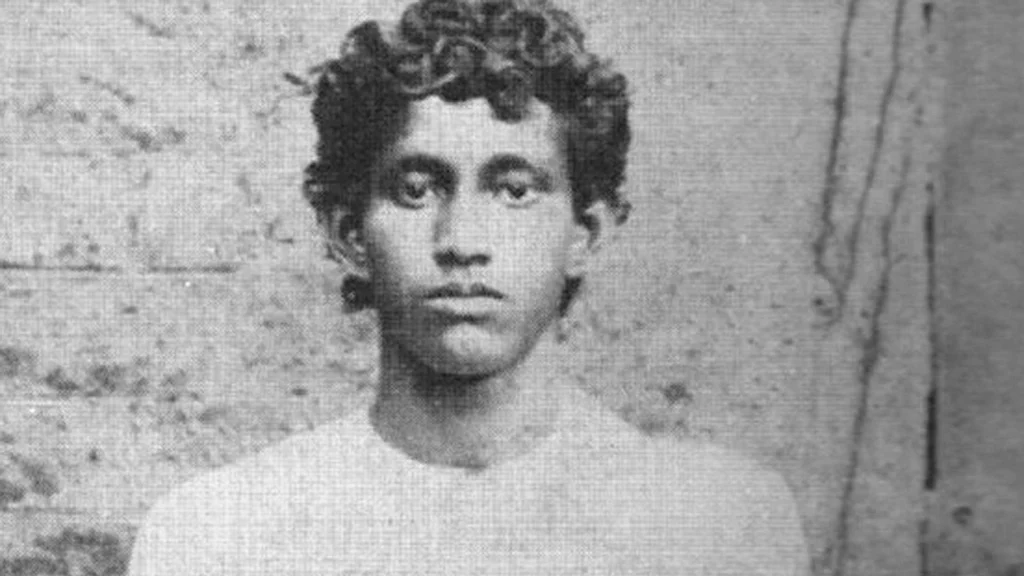Remembering Khudiram Bose, the youngest revolutionary martyr of India’s freedom struggle
He was 18 years, 7 months 11 days old when he was hanged in Muzaffarpur (Bihar) on August 11, 1908. The nation remembers martyrdom of the ‘boy revolutionary’, youngest to be hanged by the British

Born on December 3, 1889 in Habibpur of Midnapore district of the then Bengal Presidency, Khudiram Bose lost both his parents, Trailokyanath Bose and Lakshmipriya Devi, when he was just six. Never too fond of studies, he would rather spend his time helping people affected by flood and other calamities. A student of Midnapore Collegiate School, he gave up studies to dedicate his life to revolutionary activities. After dropping out, he became a member of the Revolutionary Party.
In 1905, when Bengal was divided, ‘Banga-Bhanga’ saw the strongest protests in Midnapore where Khudiram Bose actively participated in burning British products. The British attitude towards peasants, revolutionaries, farmers and other Indians further fuelled his anger.
As a member of the Revolutionary Party, he started distributing pamphlets with Vande Matram written on them. At one of the places where Bose was distributing pamphlets, he apparently slapped a police officer, breaking his nose when he was just 14 years old.
At the age of 16, he had learnt how to make bombs and went about planting bombs near police stations and targeted government officials.
In 1908, he and Prafulla Chaki were assigned to assassinate Muzzaffarpur district magistrate Kingsford. Kingsford, before being transferred to Muzaffarpur, was a magistrate in Bengal and his method of torturous punishments against revolutionaries had angered the youngsters of Bengal. It was decided that the two appointed men, Bose and Chaki, would hurl bombs at him in the court but after 10 days of monitoring Kingsford’s movements, they realised that hurling bombs in courtroom would injure a large number of innocent civilians. The plan was thereafter changed to assassinate him outside a club which he attended.
On April 30, 1908, Khudiram Bose instructed Chaki to run away and threw the bomb himself on the carriage, in which Kingsford was supposed to be travelling. However, as he had on previous occasions, Kingsford escaped death as the carriage was, instead, carrying the wife and daughter of a barrister named Pringle Kennedy. Bose was arrested from a railway station in Samastipur district, where he had reached walking barefoot for 25 kilometres (16 miles) after bombing the carriage. Later, the station where he was captured was renamed to Khudiram Bose Pusa railway station.
Unlike other parts of India, where revolutionaries could rarely afford a lawyer, educated Bengali lawyers’ teams used to represent the revolutionaries of Bengal for free. Khudiram’s statement was recorded in English, instead of the language used by Bose, and lawyer Narendra Kumar Basu used this, along with Bose’s tender age, to defend him. Bose was too young to know the art of making a bomb, he had argued.
However, the judge received a letter, where it was written that there would be revolutions not only in Bengal but also in Bihar if Bose was not sentenced, or sentenced lightly.
On 13 July 1908, Bose was finally sentenced to death. On being asked by the shocked English judge, as Bose was still smiling after hearing the judgment, whether he understood the judgment, the young freedom fighter said with a smile on his face, “Yes, I do and my lawyer said that I was too young to make bombs. If you allow me some time before I’m taken away from here, I can teach you the skills of making bombs too.”
He was, finally, executed at 4:30 in the morning of August 11, 1908.
Follow us on: Facebook, Twitter, Google News, Instagram
Join our official telegram channel (@nationalherald) and stay updated with the latest headlines
